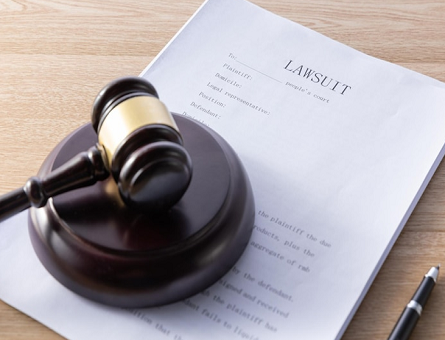Damages You Can Get Compensated for by Filing a Case Against Your Abuser
 Sexual abuse affects a person physically, emotionally, and financially, sometimes for the rest of that person’s life. That’s why survivors have the legal right to seek compensation by filing a civil lawsuit against their abuser. This kind of lawsuit not only holds the person accountable but also helps the survivor move forward, access the care they need, and recover what they’ve lost.
Sexual abuse affects a person physically, emotionally, and financially, sometimes for the rest of that person’s life. That’s why survivors have the legal right to seek compensation by filing a civil lawsuit against their abuser. This kind of lawsuit not only holds the person accountable but also helps the survivor move forward, access the care they need, and recover what they’ve lost.
The types of damages you can seek may depend on which state the abuse took place in, and in some states, there are limits (called caps) on how much compensation you can get in certain categories.
If you’re wondering what you might be able to recover in your own case, you can visit www.fileabuselawsuit.com for help understanding your rights and options.
Economic Damages
Economic damages are the financial losses you’ve faced because of the abuse. These are costs that can be calculated in actual dollar amounts. These are the expenses that come with trying to treat, manage, and live with the physical and mental harm caused by your abuser.
Medical and therapy bills
One of the most common types of economic damages is the cost of medical treatment. While some survivors may not need intense physical care, others might require emergency treatment, surgeries, or physical therapy.
More often than not, the higher cost comes from mental health treatment. Survivors often need therapy or counseling for PTSD, anxiety, depression, or other trauma-related conditions.
These treatments can last for months or even years. The cost can include diagnosis, therapy sessions, medication, and any follow-up care.
Lost wages and income
If the abuse has affected your ability to work, you may also be able to claim lost income. For many survivors, holding down a job becomes difficult due to mental health struggles like flashbacks, panic attacks, or chronic anxiety.
This means they may miss work or even lose employment entirely. Some might not be able to return to work in the same field, while others may never feel emotionally safe in a work environment again. These lost earnings can be claimed as part of your compensation.
Non-Economic Damages
Non-economic damages are the emotional and psychological effects of abuse. They don’t come with a receipt or a dollar figure, but that doesn’t make them any less real or important. This category covers the pain you feel inside and any other emotion that can’t always be seen but definitely affects your life.
This includes everything from emotional pain and fear to the shame and guilt that survivors often carry. You may feel like your sense of safety, trust, and peace of mind has been stolen.
You may struggle to sleep, experience constant fear, or live with anxiety and depression. These experiences are considered non-economic damages, and they can be included in your legal claim.
The amount you can claim here depends on how severe and long-lasting the emotional harm has been. For instance, if you’ve been struggling with PTSD symptoms for decades, the compensation will likely be higher than for someone who’s only recently begun to show signs of emotional distress.
It’s important to know that some states place limits or caps on how much you can be awarded in non-economic damages. These caps vary widely, and they usually don’t apply to economic damages like medical costs or lost income. Your lawyer can help you understand if any such limits apply in your state.
Punitive Damages
Punitive damages are different from the other types. They’re not about repaying you for what you’ve lost. Instead, they’re meant to punish the person who harmed you and stop them or others like them from doing it again. In short, they’re designed to send a message.
These damages are usually only available when the abuser’s actions were especially cruel, intentional, or involved a serious violation of trust. For example, if someone in a position of authority (like a coach, teacher, or religious leader) used that position to abuse you, a court might see that as a reason to award punitive damages.
Punitive damages also depend on the laws in your state. Not every case qualifies for them. Some states have strict requirements, and most only allow them if the abuse was particularly egregious or if there’s clear evidence that the abuser acted in a willful or malicious way.
In some states, there’s a cap on how much you can be awarded in punitive damages. For example, in Georgia, these damages are capped at $250,000 for most injury cases, including sexual abuse.
Also, courts often make sure that punitive damages aren’t more than three times the amount of other damages you’re awarded.